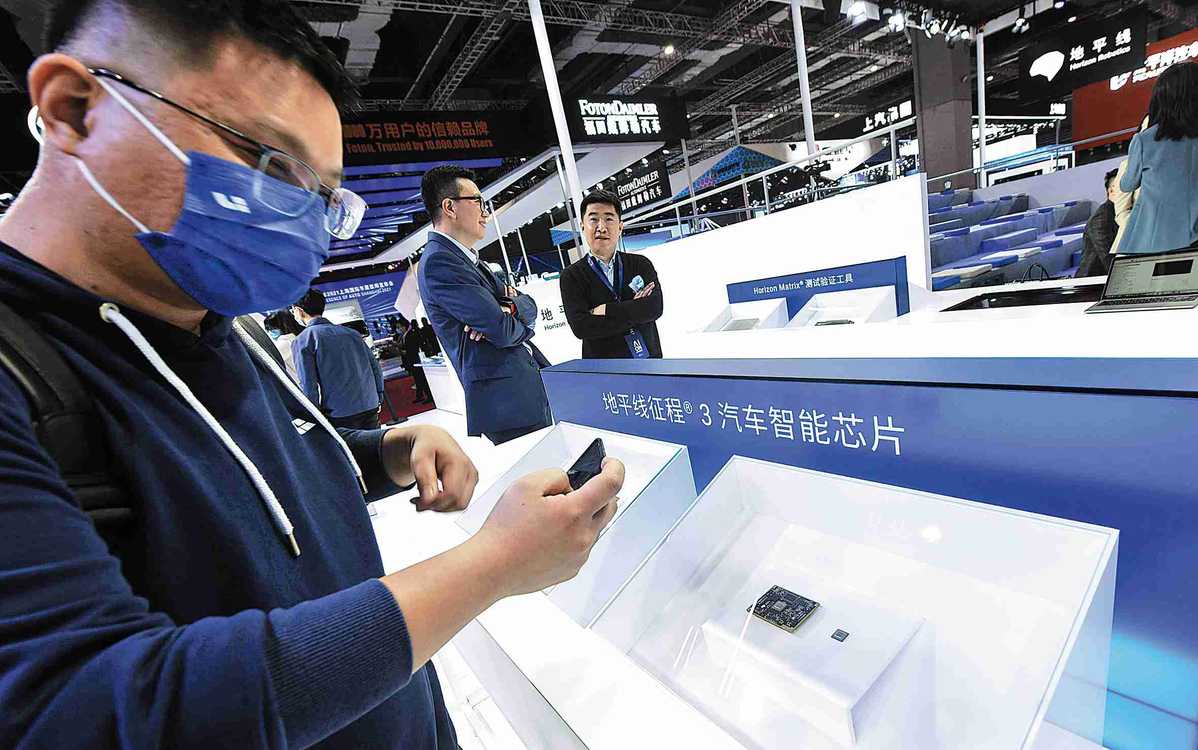Calls for action to halt automotive chip crisis

Electronics startups inside country need support from the top, executive says
Government authorities and major carmakers in China are calling for efforts to alleviate the effects of chip shortages that have hurt the global auto industry for more than a year.
The chip crisis reduced global vehicle production by more than 10 million units in 2021, of which 2 million were in China, according to AutoForecast Solutions.
The situation now is less severe than in 2021, with production reduced by 650,000 units by the first week of March.
China's largest SUV and pickup truck maker Great Wall Motors saw its sales plunge more than 20 percent in February to 70,792 units.
It said the major cause was its sole supplier Bosch had failed to produce enough electronic stability systems due to chip shortages.
Great Wall Motors said: "We are working with Bosch and chipmakers to raise their production to solve the current problem."
Wang Fengying, the carmaker's president, said automotive-grade chips currently in need are usually 55-nanometer micro-control units.
They are simpler than those used in consumer electronics but are much more demanding in reliability. Because they are much cheaper than the latest semiconductors, chipmakers are not so motivated to produce them, she said.
Another Chinese car giant, Geely, has been affected as well. Its sales in February of 78,478 units represent a 46 percent fall from the previous month, mainly because of Bosch's low supply of electronic stability systems.
Cailian Press reported that Geely is considering an alternative plan to alleviate its production pressure in the second quarter. But Bosch will remain the predominant supplier.
A lack of independent research and development, a high dependence on imports and lagging development of the industrial chain are the core problems faced by China's chip industry, said GAC President Zeng Qinghong.
"Chinese companies need to strengthen research in core technologies and areas such as the manufacturing of chips and packaging, to break through the technical bottleneck," Zeng said.
"We need to encourage overseas automotive chip companies to invest in China, and domestic carmakers and components companies should optimize the layout of supply chains to minimize the effects of chip shortages," he said.
Tian Yulong, a spokesman for the Ministry of Industry and Information Technology, said the shortage of automotive chips has gradually eased with the world's major chip companies beefing up production, and the supply capacity of domestic chip companies also growing.
"We will continue to provide policies and a market environment suitable for domestic and foreign integrated circuit companies and treat all market players equally," Tian told a recent news conference.
Last week, China's top economic planner, the National Development and Reform Commission, said it will make solving chip shortages a priority this year.
It said it will guide semiconductor makers to gradually expand their production, stabilize supply chains inside and outside China, and will help them connect with suppliers.
It also vowed to pay close attention to raw materials' prices, helping suppliers and manufacturers secure production resources.
Wang at Great Wall Motors said China should work out a five-year or even 10-year plan to foster the local sector.
"Otherwise, startups in the sector will not able to compete with international giants when they rev up production as soon as the pandemic is over," she said.
Wang also called for efforts to promote the use of Chinese chips in local products so that manufacturers can obtain feedback from the market and then improve their chips' quality and functions.
A number of Chinese carmakers including Great Wall Motors and SAIC have invested in local chip companies, such as Horizon Robotics, or set up their own subsidiaries in terms of chip development in the hopes of cutting reliance on international semiconductor makers.
The long-term solution to chip shortages, said Wang, is for China to put in place a mechanism in terms of attracting and cultivating professionals in the sector to ensure its sustainable development as the automotive industry is going electric and smart.
"We need a strategic plan at the very top so that we can cultivate semiconductor professionals wave after wave to keep with the changes in the frontiers," she said.

